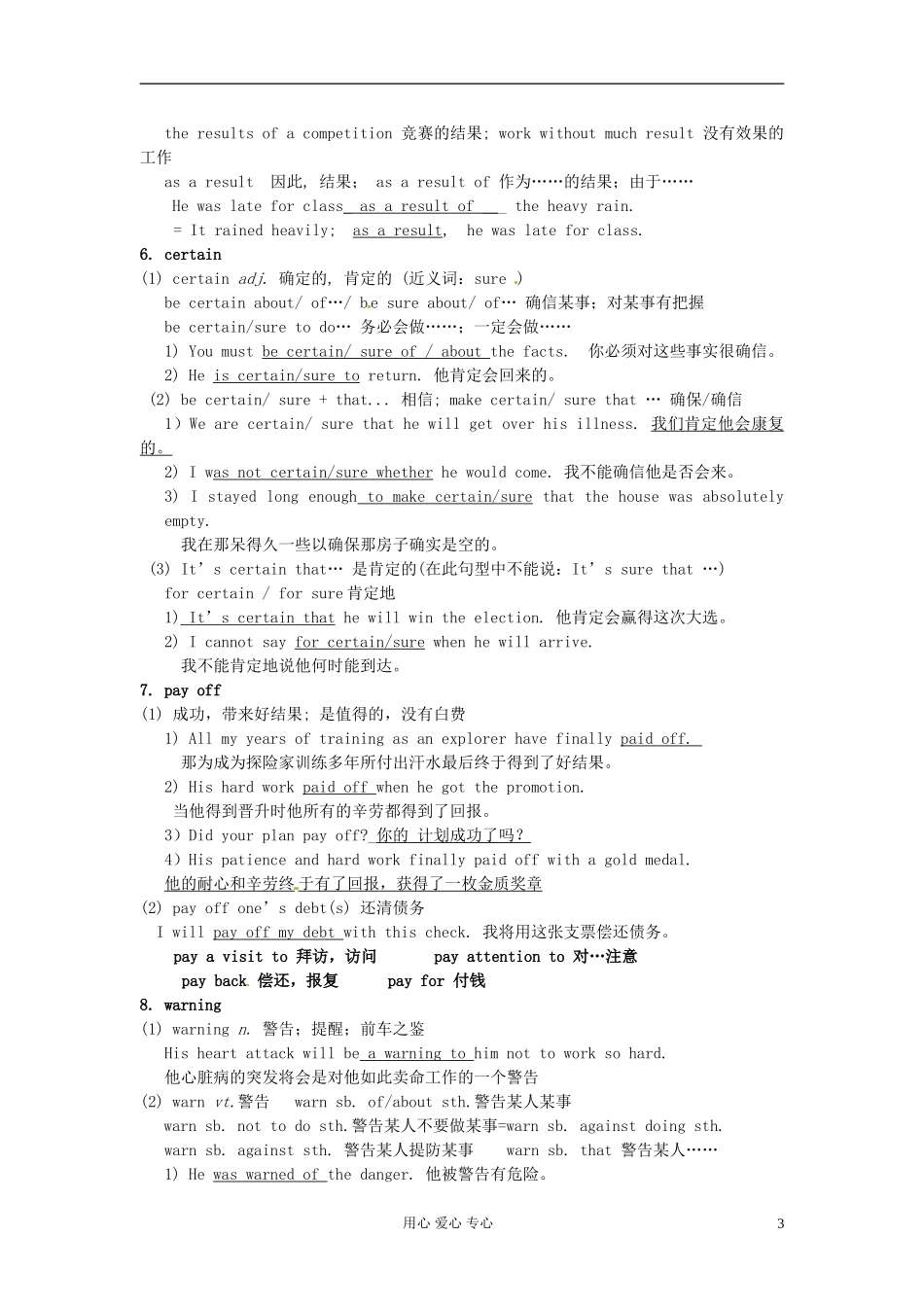"江苏省怀仁中学高一英语 教师版 m2u3 语言点 "Welcome to the unit:1. have an effect on 对…有影响 effect(n), effective (adj), _effectively _(adv)eg. Alcoholic drink can _have a bad effect on__ your health. 对你的健康有害The government action _had no effects on the trade imbalance. 对…无影响be of no effect 无效,没有作用,不中用 carry sth into effect 使生效, 实现put sth into effect 实行,实施 come into effect 开始生效Reading: 1. curious (1) curious adj. 好奇的;求知欲强的; 奇特的 Children are curious about everything around them. I am curious to know what he said. I’m curious how he will do it. I t is curious that she left without saying goodbye. 归纳用法:_ be curious about be curious to do _be curious +O-clause I t is curious that (2) curiously adv. 好奇地;稀奇古怪地 Philip looked curiously at the people. 他好奇地看着人们。(3) curiosity n. [u.]好奇感, 求知欲,好奇心 in/ with curiosity 好奇地(相当于 curiously); out of/ from curiosity 出于好奇心 1) Philip looked at the people in/with curiosity. 他好奇地看着人们。 2) He kept asking me numerous questions about it out of / from curiosity. 出于好奇,对那件事他问了我许多问题。(4) curiosity n. [C.]希奇的事;珍品 This red and yellow striped seashell is quite a curiosity. 这个红黄相间的贝壳是件珍品。2. discovery(1) discovery n.[c.] 发现 1) Scientists made a lot of amazing scientific discoveries in the twentieth century. 科学家们在二十世纪作出了许多惊人的科学发现。2) She was shocked at the discovery that he was a thief. 她震惊地发现他原来是个贼。(2) discover vt. 发现(发现世界上原本就存在的事物)区别:invent vt. 发明 (发明世界上原本不存在的事物) 1) Christopher Columbus discovered America in 1492. 哥伦布于 1492 年发现了美洲大陆。2) Alexander invented the telephone. 亚历山大发明了电话。(3) discove...


